Ealing Brewing and our sister company Marko Paulo were set up by two former teachers, Mark and Paul. Marko Paulo was established in 2016 when we
opened the first Micropub in west London - The Owl and The Pussycat. We quickly gained a reputation for brewing outstanding traditional beers with
more than a hint of the modern about them. You could say that we produced Progressive Beers, Rooted in Tradition.
After winning multiple awards and regularly being approached by other pubs about our beers we felt it was time to expand. We had simply outgrown our
tiny 200L brewery and were frequently turning down requests for bottles and casks - there was only one thing for it: Ealing Brewing was born.
After a lot of searching for suitable premises we eventually found our home in The Ham, Brentford. We knew Brentford very well and respected it as
a beer town. With the excellent new pubs in the area, we now feel that Brentford could become a beer destination.
Beer starts with water. Our water isn't just tap water that we add a few chemicals to. Instead we use Reverse Osmosis technology to filter
our water giving us a pure blank canvas on which we can build our brewing liquor by adding just the right amount of minerals. It takes ten hours to collect
the water for each brew but it is well worth it.
Most of our beers are single infusion mashed with the best malted barley that money can buy, either from Crisp Maltings in Suffolk or Weyermann in
Bamberg, Germany. Our hops are bought in such small quantities that they are always the freshest possible. We use a range of yeasts for our beers,
depending on the style and qualities we are expecting.
With a rich tradition of public houses serving cask-conditioned "real" ale and taxation that promoted lower strength beers, English brewers mastered the art of producing beers with more flavour than the alcohol content would suggest. There is no better beer than beautifully kept and served English draught ale.
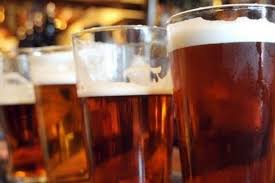
Bitters: Balanced and incredibly moreish, we make a complete range of Bitters, both Southern style with a malt-forward profile and Northern style designed to be sparkled.
Blondes and Golden Ales: The New Kid on the Block, these modern British beers are light in colour, big on hoppy flavour and very more-ish.
Browns and Milds: Malty, easy-drinking classics. The most popular cask ales of all time that fell out of favour in the 1970s but are making a comeback in west London thanks to us supplying the beers in cellar-friendly pins (half-sized casks)
Porters and Stouts: although Porter and Stout are historically the same beer, our Porters are rich and chocolatey, whilst our Stouts are roasty and dry. We occasionally produce traditional Milk (sweet) Stout with added lactose Meanwhile our Imperial Russian Stouts are very strong and full of flavour.
India Pale Ales: our traditional English-style IPAs are more balanced than modern US interpretations with a decent malty background on which the traditional earthy and honey-like English hops shine.
Strong Ales: whether it's our bittersweet Burton Ale or our sipping Barley Wine, our range of strong ales will bring warmth to the coldest evening.
From Belgium to Lithuania, Europe (and Northern Europe in particular) has a massive range of beers. Some strong, some sour, some displaying horse blanket aromas and some just weird compared to British beers, this part of the world is an adventure playground of flavour and style.
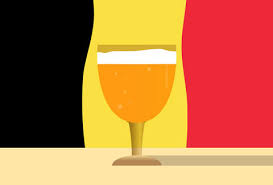
Hefe Weißbier: this classic Bavarian white beer is brewed with at least 40% malted wheat and top-fermented with the same strain of yeast used by the self-claimed "oldest brewery in the world" (Weihenstephaner, near Munich). This beer has a distictive clove and banana flavour and is so incredibly refreshing that it forms part of a traditional Bavarian breakfast of weißwürste und weißbier (white sausages and white beer)
Saison: Dry, food-friendly and flavoursome, Saisons can have strong fermentation character, often fermented at high temperatures.
Dubbel, Trippel, Belgian Strong Dark Ale: These classic, rich Belgian styles can be light coloured and very strong (trippel), dark and strong (dubbel) or dark and extremely strong (Strong Dark). All are delicious sipping beers.
Witbier: Belgian white beer is flavoured with coriander spice and bitter orange peel. It contains a significant proprtion of wheat in the grist.
Sours and Fruit Beers: Beer can be soured (to pH below 4) by kettle souring (an oldish German technique where the wort is infected with bacteria until it's sour enough and then boiled to kill the microbe before adding yeast), mixed fermentation (yeast and bacteria compete in fermentation - a bit like in sourdough bread) or fermentation with new lactic-acid producing yeasts. There are advantages and disadvantages to each method - usually if it's simpler to do, it is not as complexin flavour.
Brettanamyces Beers: These beers have a distictive goaty aroma! If that sounds bad, try explaining Parmesan to a non cheese eater without it sounding terrible. Yet both are delicious!
Raw Lithuanian Beers: Beer is (usually) boiled with hops for an hour or two. This sterilises the wort and extracts bitterness from the hops, amongst other things. Raw beer misses this process, going up to Pasteurisation temperature only. They have a thicker texture and much shorter shelf life. We brew these only occasionally and even then in very small batches to ensure freshness.
Lagers mainly come from Central Europe - the southern German state of Bavaria and neighbouring Czechia in particular. They range from delicate and malty Helles to black Schwarzbier and from bitter, hoppy Pilsner to intense, smokey Rauchbier. What links them all is in the name - lager meaning "store" (like larder in English). These beers are usually cold-fermented with yeast that is capable of producing cleaner, crisper beers.
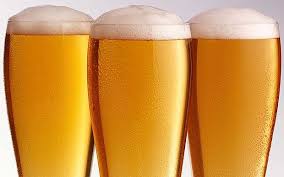
Munich Dunkles: The oldest continually brewed style of beer in the world, this flavoursome lager was until quite recently the most popular beer in Munich.
Märzen: Sometimes called Oktoberfest Märzen, this copper coloured beer used to be the staple of Munich's famous volksfest. Brewed in March, giving it its name, served in Autumn.
Vienna Lager: A rich lager, amber in colour.
Bock: Strong lager. Originally a beer from Einbeck, it became ein Bock in Bavarian dialect. Because Bock is German for 'Billy Goat', bottles often have a goat on them. Doppelbock has two goats on the labels and is a very strong lager with rich dried fruit flavours.
Rauchbier: Since we first brewed smoked beer in The Owl & The Pussycat it has been a semi-regular beer on the taps. Made with malt smoked over beechwood, imported from the famous Weyermann malthouse in Bamberg, Germany our Rauchbier is dark, intense and rewarding.
Kellerbier: Literally 'cellar beer' this cask lager is younger and often more bitter than Helles.
Pilsner: Our Reverse Osmosis water system allows us to produce the softest water, just like the very best Pilsner brewers in the Czech Republic. We use German malt and Saaz hops to produce a bitter Lager that is both rich and refreshing.
Helles: Bavaria's answer to the Golden Pilsners of Bohemia, Helles is delicate and malty. Ours is made using Bavarian malt and Hallertauer hops and fermented with Weihenstephaner lager yeast. Inspired by many trips to the south of Germany where it is very difficult to find bad beer.
Festbier: is simply a stronger Helles. Now the dominant style at Bavaria's Volksfests, including, of course, Oktoberfest.
Schwarzbier: Black lager. Less roasty than English Stout with a cleaner taste.
Kölsch: the classic Cologne Obergäriges Lagerbier. Our take on this style, Steinfurter, is named after Ealing's twin, which happens to be in the same state as Cologne. Clean, moderately bitter and maybe slightly fruity.
Altbier: this beer varies a fair bit in Düsseldorf from very bitter to only moderatley so. Ours, Altenberg Alt, named after the street off Northfield Avenue (nobody seems to know why it is so-called) is deep brown and assertively bitter.
Most modern beer styles have their origins in the United States, as does the craft beer revolution. Some modern styles, like American Pale Ale and US-style India Pale Ale, are undoubtably here to stay. Others are probably a passing fad - time will tell. We love the hop-forward styles that have lingering bitterness. We use lots of hops from the Yakima Valley in Washington that deliver notes of pine, citrus and peach, amongst others.
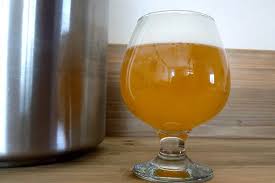
American Pale Ale: America's answer to Bitter is bigger, brasher and more in-yer-face than the subtle English ale. We brew ours to be assertively bitter, amber in colour with lots of aromatic US hops.
US-style IPA: The beer style that has become the poster-ale of the craft beer revolution, US IPA is all about hops. American hops and lots of them. We use the choicest Yakima Valley hops with neutral yeast and pale malt to produce an intense drinking experience.
In addition to Gift Vouchers (any value) than may be redeemed in our pub and taproom, branded glasses and merchandise, we offer other gift ideas for the beer lover in your life.
For pub quality cask beer at home, we recommend Bag in Box beers. Available in 3L, 5L and 10L sizes they can be served from the tap. To really impress your friends, how about connecting to your own hand pump?
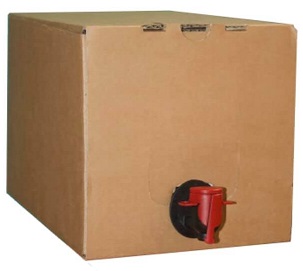 Pros
Pros
We take a firkin of our cask conditioned beer from our cold room. It is tapped just as if it were to be served in a bar but the cold temperature holds all the carbon dioxide in the beer.
The tap is fitted with a sanitised silicone tube that reaches the bottom of the bag. The bag is filled with minimal agitation to avoid oxygen and preseve CO2. Then the sanitised tap is fitted.
As long as we have a cask of beer in our coldroom, we can fill a bag to order. Lead time is up to one week.
We are told that the double layer provides an effective oxygen barrier that keeps beer fresh for months. Even when open the beer keeps well if stored at or below 12°

Our 5L minikegs are really tiny casks that are capable of holding high pressure. We fill them in the same way that we fill our bottles.
The beer is live, meaning it contains yeast. This extends the shelf life of the beer and gives a better flavour compared to filtered and pasteurised beer.
ProsUnlike most supermarket ones, our minikegs are not pasteurised. The should be treated as a cask is treated in a pub cellar. This means that the top needs opening whenever beer is being served and closed afterwards. We recommend chilling, opening the top in advance of drinking and leaving to settle. During this time it is normal to have a small volume of beer froth out of the top but when this stops, it can be sealed.
If you find that the tap is not pouring smoothly, check that the top is open - otherwise a vacuum will form and air will need to be sucked in.
Once opened, we recommend drinking within 3 days but beer will keep fresh for longer if stored cold. Unopened, the minikeg will have a Best Before date.
For those who can't commit to just one beer, or would like a range, we have a Gift Selection 6-Pack of bottle conditioned beers in a Christmas-themed carry box.
As with all of our beers, these are unfiltered and unpasteurised, so store upright in a cool place and pour carefully to avoid the sediment (although some beers, like hefeweissbier, are traditionally served with the sediment).
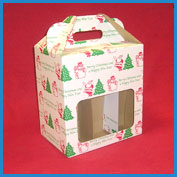

Come and sample our beers in the taproom above our brewery. The list of beers available is updated regularly.
We welcome dogs, sports fans and well-behaved children.
Free Wifi available.
We accept all major credit cards (including American Express). Minimum spend £1.

Following some unexpected news we have had to take the difficult decision to temporarily close the taproom. We are really sorry about this.
Currently closed. We hope to return soon. In the meantime The Owl and The Pussycat stocks our full range at the same prices.
We can re-label our stock beers to include your own picture or text! These bottles make great gifts for the beer lover in your life
For a very special occasion, we can brew a whole batch to your requirements. That's over 800 pints of your very own beer!
If 800 pints is too much, we can lower this provided it is a good beer for general sale (so no whacky ingredients!).
We can also design labels for your bottles or minikegs to help your celebration be even more memorable. There is no minimum order and prices are the same as our regular beer plus a small charge for personalised labels. All you need to do is provide square artwork (oblong shaped art will be scaled) and we'll do the rest.
If it's a cask of beer for a party, we can provide all you need to have your own real ale on tap
Use the Contact form to let us know your requirements or to discuss what we can do to help
We can provide bespoke or regular beers in 40L and 20L cask, 30L keg and 330mL and 500mL bottles. Whether you run a pub or club, a restaurant or off-licence - whatever you require, we can do it.
To receive updates about our beers, sign up to our mailing list by clicking the link below.
*** UPDATE there will be no immediate confirmation to tell you all is well, but it does complain if there is an error. Updates will be sent weekly from w/b 24 Feb
There are no vacancies at the moment. Check our Social Media for any announcements
We are located in an industrial area between the High Street and the River Thames in Brentford.
Rail: Brentford is served by South Western Railway trains from Waterloo. We are half a mile from the station.
Tube-Bus: The nearest bus stop is Brentford Market Place.
Road: Please note that on-site parking is only available to take-out customers and parking on The Ham is for permit holders only.